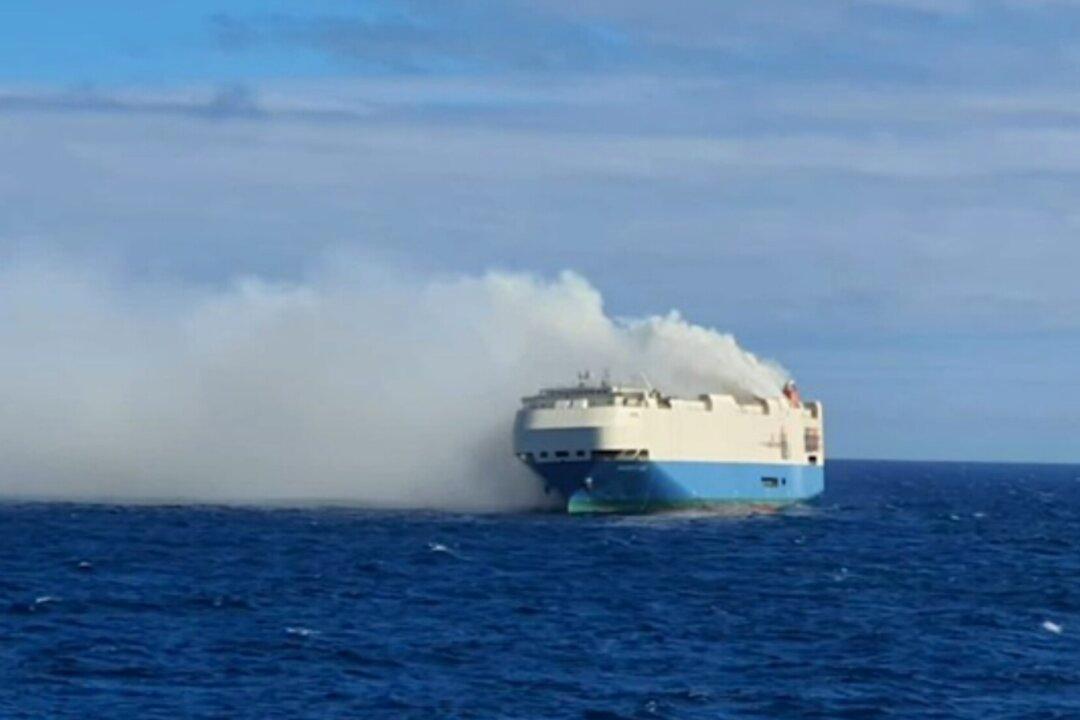The fire aboard a cargo ship carrying electric cars off the Azores islands is under control and is being put out, according to a Feb. 22 statement from Portuguese authorities.
The flames are no longer visible from the outside and the ship is now stable, they said.





